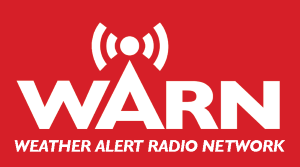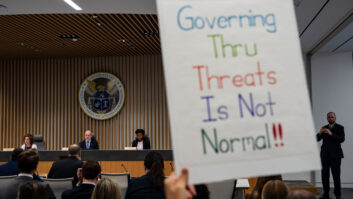
How do you define the word “jurisdiction?”
That was the central point of contention for a nonprofit that wanted to convince the Federal Communications Commission to allow a network of LPFM stations to provide weather-based programming to hurricane-prone communities.
But Weather Alert Radio Network’s latest argument failed to convince the FCC’s Media Bureau. The commission both dismissed and denied an application for review of a final order that the Florida-based organization filed last August.
[Related: “LPFM Weather Network Tries Again”]
Among the Media Bureau’s reasons for rejecting WARN’s application was the definition of “jurisdiction” found in the 1999 edition of Black’s Law Dictionary — a year before the FCC had established a requirement that any government or non-government organization proposing an LPFM public safety radio service must have jurisdiction within its service area.
WARN had referenced 106 LPFM applications it filed during the 2023 window for sites in Alabama, Florida, Georgia, Louisiana, Mississippi, North Carolina, South Carolina, Texas, Virginia and the U.S. Virgin Islands.
All of the applications were singleton proposals, not in conflict with others, WARN said.
Public safety loophole
FCC rules do permit an organization or government entity to hold multiple LPFM licenses as a public radio service if one of the applications is submitted as a “priority” application and the rest are not part of any mutually exclusive group challenges, and if it can prove it has “jurisdiction” there. For a non-governmental entity, that would mean it has been contracted or authorized by an entitled entity to provide public safety radio services in the area.
Our friends at REC Networks refer to this scenario as “the public safety loophole.”
In August 2024, WARN filed an application with the commission for review of the final action, which followed both the commission’s initial dismissal of its applications and the subsequent denial of a WARN petition.
“The eligibility for public safety requires a nonprofit to have jurisdiction, yet how can that be proven? And what constitutes jurisdiction?” WARN founder Rob Connelly told Radio World in a September 2024 email.
The organization argued that since the FCC had not previously defined “jurisdiction” publicly, its position on the question was not based on any precedent. Instead, WARN claimed it was an “unlawful attempt” by the Media Bureau to impose an interpretation that it believed was beyond the bureau’s authority.
WARN also contended that the commission’s requirement for a non-governmental applicant to provide evidence of authority from a governmental source to satisfy the jurisdictional requirement violated the Administrative Procedures Act.
It also argued that the commission had unlawfully imposed retroactive restrictions on WARN.
Black Law’s definition
The Media Bureau dismissed WARN’s latest application for review.
It pointed to the requirement established in 2000, at the advent of the LPFM service, that any non-government organization proposing an LPFM public safety radio service must have jurisdiction within its service area.
The commission clarified that these types of organizations must be local or based in the community they propose to serve.
(Read the Media Bureau’s decision.)
The Media Bureau explained that this requirement maximizes the likelihood that the LPFM will be “grounded” in the community it serves and will respond to local interests “not necessarily being met” by full-power stations.
The 2000 order did not define the word “jurisdiction,” so the commission deferred to its dictionary definition, specifically from the 7th edition of Black’s Law Dictionary:
“An area in which political or judicial authority may be exercised”; “the territorial range of authority.”
The Bureau reiterated that WARN did not submit any supporting materials to establish jurisdiction in the proposed LPFM service areas. It noted that despite this being pointed out in the initial dismissal letter, WARN did not attempt to submit these materials. Instead, WARN simply repeated its offer to provide the materials upon request.
WARN’s arguments that the Bureau’s actions constituted APA violations and retroactive rulemaking were also dismissed. The FCC said that WARN had an opportunity to present these arguments at the beginning of the application process but failed to do so.
WARN timeline
The FCC originally dismissed the WARN applications in February 2024, finding that WARN did not qualify as a public safety radio service and did not meet the commission’s requirements as a “local organization.”
The Media Bureau explained that WARN did not provide any documentation of its communication with government entities, other than listing the names of organizations it had contacted, such as the National Weather Service and FEMA.
In response, WARN petitioned for reconsideration, arguing that its operations would be in the public interest and asked for a waiver of the public safety and local organization requirements.
The Media Bureau denied WARN’s request in July 2024, affirming that WARN was not a local organization.
WARN believed its system would help underserved coastal and rural communities and provide public safety agencies with a “direct to the public” connection it could activate without desensitizing the public to the Emergency Alert System.
According to Michi Bradley of REC Networks, WARN’s only remaining option is to appeal its case to the DC Circuit Court of Appeals. Read more of Bradley’s analysis on the REC Networks Substack.







